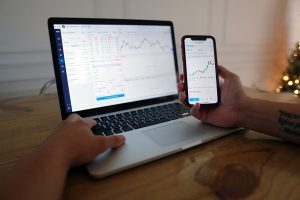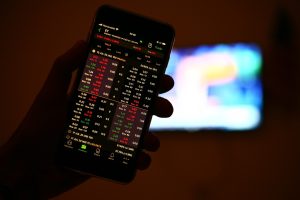Introduction to Forex Trading
Forex trading, also known as foreign exchange trading, is the process of buying and selling currencies in the foreign exchange market with the aim of making a profit. It is one of the largest and most liquid financial markets in the world, with a daily trading volume exceeding trillions of dollars. Forex trading offers individuals the opportunity to participate in global currency markets and potentially generate significant returns. However, it also comes with its own set of risks and challenges, especially for beginners.
Understanding the Basics
What is Forex Trading?
Forex trading involves the exchange of one currency for another at an agreed-upon price. Currencies are traded in pairs, with the most commonly traded pairs including EUR/USD (Euro/US Dollar), GBP/USD (British Pound/US Dollar), and USD/JPY (US Dollar/Japanese Yen). The first currency in the pair is called the base currency, while the second currency is called the quote currency.
How Does Forex Trading Work?
Forex trading takes place 24 hours a day, five days a week, allowing traders to engage in buying and selling currencies at any time. The forex market operates through a global network of banks, financial institutions, corporations, and individual traders who buy and sell currencies electronically.
Essential Strategies for Beginners
1. Educate Yourself
Before diving into forex trading, it's crucial to educate yourself about the fundamentals of the market, including how it operates, key terminology, and various trading strategies. There are numerous online resources, courses, and books available that can help beginners gain a better understanding of forex trading.
2. Start with a Demo Account
Practice is essential when it comes to mastering forex trading. Many brokers offer demo accounts that allow beginners to trade with virtual money in a simulated trading environment. This enables traders to familiarize themselves with the trading platform and test different strategies without risking real capital.
3. Develop a Trading Plan
A trading plan outlines your trading objectives, risk tolerance, and entry and exit strategies. It helps you stay disciplined and avoid making impulsive decisions based on emotions. Your trading plan should also include risk management techniques, such as setting stop-loss and take-profit levels to minimize potential losses.
4. Manage Your Risk
Risk management is a critical aspect of forex trading. Never risk more than you can afford to lose on any trade, and always use proper risk-reward ratios to ensure that potential rewards outweigh potential risks. Additionally, consider diversifying your trading portfolio to spread risk across different currency pairs.
5. Stay Informed
Stay updated on global economic and geopolitical events that may impact currency markets. Economic indicators, central bank policies, and geopolitical tensions can all influence currency prices. Utilize news sources, economic calendars, and market analysis to stay informed and make informed trading decisions.
6. Technical Analysis
Technical analysis involves analyzing historical price data and market statistics to identify patterns and trends that may help predict future price movements. Common technical indicators include moving averages, MACD (Moving Average Convergence Divergence), RSI (Relative Strength Index), and Fibonacci retracements. Incorporating technical analysis into your trading strategy can provide valuable insights and improve decision-making.
7. Fundamental Analysis
Fundamental analysis focuses on analyzing economic indicators, geopolitical events, and central bank policies to assess the underlying factors driving currency prices. Key economic indicators to monitor include GDP (Gross Domestic Product), employment reports, inflation rates, and interest rate decisions. By understanding the fundamental factors influencing currency markets, traders can make more informed trading decisions.
8. Emotional Discipline
Emotional discipline is essential for successful forex trading. Fear, greed, and overconfidence can cloud judgment and lead to irrational decision-making. It's crucial to remain calm and composed, especially during periods of market volatility. Stick to your trading plan and avoid making impulsive trades based on emotions. Developing emotional discipline takes time and practice but is critical for long-term trading success.
9. Continuous Learning
Forex trading is a dynamic and ever-evolving field, and staying abreast of new developments and market trends is essential. Continuously educate yourself through books, articles, webinars, and seminars. Engage with other traders, join online forums and communities, and seek mentorship from experienced traders. By staying curious and open-minded, you can continually refine your trading skills and adapt to changing market conditions.
10. Patience and Persistence
Success in forex trading doesn't happen overnight. It requires patience, persistence, and a willingness to learn from both successes and failures. Don't be discouraged by temporary setbacks or losses. Instead, view them as valuable learning experiences that can help you refine your trading strategy and improve your skills over time. Stay focused on your long-term goals and remain disciplined in your approach to trading.
Conclusion
Forex trading offers tremendous opportunities for individuals to participate in the global currency markets and potentially achieve financial independence. However, it requires dedication, discipline, and a commitment to ongoing learning and improvement. By implementing the essential strategies outlined in this article, beginners can demystify forex trading and embark on their trading journey with confidence.






